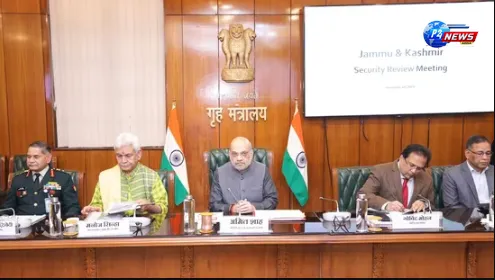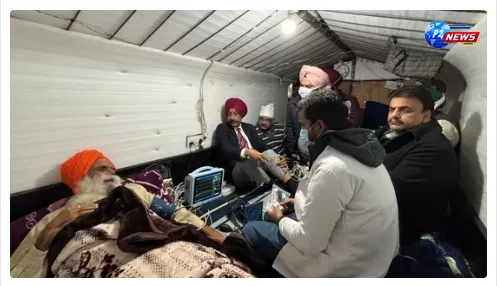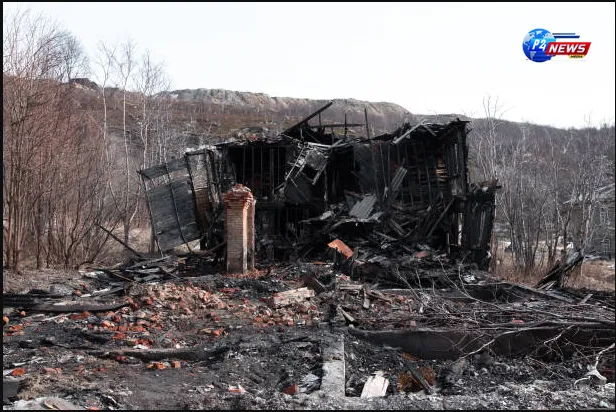Among the five terrorists apprehended was Farooq Ahmad Bhat, known as Nali, a self-proclaimed Hizbul commander linked to numerous terrorist activities in Jammu and Kashmir. His involvement has raised significant concerns about security in the region.
On Thursday, Union Home Minister Amit Shah convened a meeting to assess the security dynamics in Jammu and Kashmir, following the recent elimination of five Hizbul Mujahideen terrorists in Kulgam. Among those killed was the self-proclaimed commander, Farooq Ahmad Bhat, also known as Nali, who had been implicated in various terror activities in the southern regions of the territory.
This gathering marked Shah's initial review of the security landscape in the Union territory since the Assembly elections took place. In attendance were Lieutenant Governor Manoj Sinha, high-ranking officials from the Army, paramilitary units, state administration, intelligence agencies, and representatives from the Ministry of Home Affairs (MHA).
According to data compiled by local police and intelligence agencies, there has been a significant decline in terrorist activity in Jammu and Kashmir since the abrogation of Article 370. Data reveals a stark contrast between the terror incidents recorded before and after this political shift. Between April 2, 2014, and July 31, 2019, a total of 1,458 incidents were documented, which drastically decreased to 896 following the abrogation that commenced in August 2019 and has continued until December 2, 2024.
In the earlier period, 420 local terrorists lost their lives, whereas 517 have been neutralized in the post-abrogation phase. The past five years have also seen a marked reduction in the infiltration of terrorists from neighboring countries, which has been attributed to enhanced border security and stricter control measures along the line of control. Statistics indicate that 156 foreign terrorists were killed in this timeframe, compared to 469 in the five years leading up to the abrogation.
Furthermore, the number of security personnel killed in terrorist incidents has plummeted from 399 in the previous era to just 136 in the current period. Civilian casualties have also seen a significant drop, declining from 256 to 150. Additionally, attacks targeting civilians have reduced from 235 to 165 since August 5, 2019.
The frequency of grenade attacks has decreased from 284 to 187, while improvised explosive device (IED) explosions fell from 35 to 31. Similarly, stand-off firing incidents have seen a 33 percent reduction, dropping from 358 to 240 until the end of November 2024. The impact on civilian safety during law enforcement actions cannot be overlooked, with the number of individuals killed and injured in these operations reducing from 133 to zero and from 9,599 to just 117, respectively, across the defined period.
In an effort to maintain a zero-tolerance policy towards terrorism, 1,517 individuals suspected of terrorist affiliations were arrested in the five years following the abrogation, a notable increase from the 454 arrests made prior to this period. Remarkably, there has been only one strike or bandh during these five years, a situation likely influenced by the administration’s governance under the Lieutenant Governor. Moreover, organized stone-pelting incidents have been practically eradicated, dropping from 6,563 to just 776 since the onset of the post-abrogation era.
A senior official from the Jammu and Kashmir police, who chose to remain anonymous, remarked, “Like the armed factions present in various states of India, we will handle the terrorists in J&K accordingly. There will be no special status, no martyrdom—these individuals will simply be treated as common criminals.” Such statements underline the commitment to a robust approach in managing the security challenges facing the region.
















Comments 0